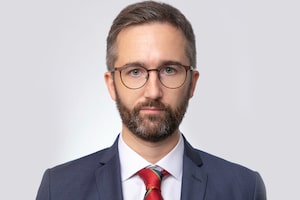
Hong Kong Chief Executive Carrie Lam said she will not seek a second term.Vincent Yu/Getty Images
Hong Kong Chief Executive Carrie Lam has announced she will not seek a second term, ending months of speculation about her future as the city continues to grapple with one of the world’s worst COVID-19 outbreaks.
Before the number of cases began rising early this year, Ms. Lam had been widely expected to stay on and become the first Hong Kong chief executive since the city’s 1997 handover to China to serve two terms. But as infections spiked and bodies piled up, Beijing staged a rare public intervention to order a more concerted response to the outbreak, and Ms. Lam faced growing criticism even from the pro-China establishment.
“I will complete my five-year term as chief executive on June 30 and officially conclude my 42-year career in government,” she told reporters Monday, adding that the decision was “my personal wish and aspiration” and was made after discussions with her family.
She said she had informed Beijing and that China’s leaders “understood and respected” her wish to step down.
Hong Kongers do not choose their leaders, who are officially selected by a 1,200-member, “broadly representative” election committee but are in reality appointed by Beijing.
Ms. Lam took office in 2017 and was at first relatively popular, especially compared with her predecessor, C.Y. Leung, who declined to seek a second term in the wake of pro-democracy protests in 2014.
The demonstrations saw thousands march and occupy parts of the city, calling for genuine universal suffrage to choose their leaders. But the unrest ultimately petered out without resolution, leaving an increasingly polarized society and simmering anger, especially among young people.
The dissatisfaction exploded in 2019, after Ms. Lam’s administration proposed an extradition bill that some feared could see dissidents taken across the border for trial in mainland China. A heavy-handed response to peaceful protests only sparked further unrest, paralyzing parts of the city for months.
At the height of the protests, Ms. Lam said privately that she blamed herself for the “unforgivable havoc” that had been unleashed.
“If I have a choice, the first thing is to quit, having made a deep apology,” she said, according to a recording of a meeting with business leaders that was leaked to Reuters. She said the chief executive “has to serve two masters … the central people’s government and the people of Hong Kong,” so “political room for manoeuvring is very, very, very limited.”
The protests finally paused amid the pandemic, and Beijing used the brief reprieve to impose a national security law on Hong Kong that has since been used to power a sweeping crackdown against the pro-democracy opposition.
Ms. Lam’s decision to stay on after 2019 – coupled with her apparent enthusiasm for using the national security law to reshape Hong Kong in an increasingly Chinese image – led many to presume she would seek a second term.
In the first two years of the pandemic, Ms. Lam earned praise from Chinese leaders for keeping the number of cases down through strict adherence to Beijing’s “zero-COVID” approach.
But then Omicron struck. As cases rose in late December and early January, China’s strategy called for a city-wide lockdown and mass testing, but Ms. Lam dithered, and the government quickly lost control of the outbreak. Hong Kong’s poor vaccination rate, particularly among the elderly, meant the city soon had one of the highest COVID-19 death rates in the world.
The increasing chaos led to a rare public intervention by Beijing, with Chinese President Xi Jinping demanding the local government get the outbreak under control. Even with supplies and health workers from the mainland, however, Hong Kong struggled to get case numbers down, and anger at Ms. Lam’s mishandling of the crisis grew, both among the public and the business and political elite.
In a newspaper column last month, former government adviser Wong Chack-kie called the situation a “man-made calamity,” adding that “if a leader is of any virtue, he or she should resign in shame after seeing so many elderly people die of policy faults.”
Ms. Lam’s successor will be chosen by the rubber-stamp election committee on May 8 and will take office July 1, the 25th anniversary of Hong Kong’s handover to China.
Front-runners to replace Ms. Lam include her No. 2, John Lee, who as security chief oversaw the response to the 2019 protests, and financial secretary Paul Chan.
Speaking Monday, Ms. Lam said her family “think it’s time for me to go home,” but having spent four decades in government, both as a British colonial administrator and a Chinese one, she may find integration into normal life difficult.
After the 2019 protests and subsequent crackdown, Ms. Lam and several other top officials – including Mr. Lee – were sanctioned by the United States. She has spoken about having to keep huge amounts of cash at home owing to being cut off from the global banking system.
“I still have not thought of what I will do next,” she said.
Our Morning Update and Evening Update newsletters are written by Globe editors, giving you a concise summary of the day’s most important headlines. Sign up today.
 James Griffiths
James Griffiths